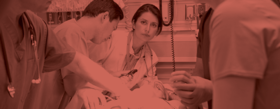Advance Cardiac Life Support (ACLS) is an advanced level of training for healthcare professionals to learn about life support and resuscitation treatments for cardiac emergencies. It is designed to provide healthcare providers with the knowledge and skills required to evaluate, manage, and provide treatment in a variety of critical cardiac scenarios. ACLS CPR training focuses on teaching participants how to respond quickly and accurately in a range of emergency situations.

Table Of Content:
- Advanced Cardiovascular Life Support (ACLS)
- Advanced Cardiac Life Support (ACLS) | CPR Training Center ...
- Advanced Cardiovascular Life Support (ACLS) Course Options ...
- Take an ALS Class | ALS Certification | Red Cross
- Advanced Cardiovascular Life Support (ACLS) – Classroom - The ...
- Free Online ACLS Course
- Impact of advanced cardiac life support training program on the ...
- Advanced cardiac life support - Wikipedia
- Review of effective advanced cardiac life support training using ...
- Advanced Cardiac Life Support (ACLS) Course| ASHI and MEDIC ...
1. Advanced Cardiovascular Life Support (ACLS)
https://cpr.heart.org/en/cpr-courses-and-kits/healthcare-professional/acls
2. Advanced Cardiac Life Support (ACLS) | CPR Training Center ...
https://www.rwjbh.org/treatment-care/training-center/healthcare-provider-classes/advanced-cardiac-life-support-acls-/
3. Advanced Cardiovascular Life Support (ACLS) Course Options ...
https://cpr.heart.org/en/courses/advanced-cardiovascular-life-support-course-options
4. Take an ALS Class | ALS Certification | Red Cross
https://www.redcross.org/take-a-class/als-and-pals/als-certification
5. Advanced Cardiovascular Life Support (ACLS) – Classroom - The ...
https://thecprhero.com/first-aid-cpr-courses/healthcare-training/advanced-cardiovascular-life-support-acls-classroom/
6. Free Online ACLS Course
https://nhcps.com/course/acls-advanced-cardiac-life-support-certification-course/
7. Impact of advanced cardiac life support training program on the ...
https://pubmed.ncbi.nlm.nih.gov/22346031/
8. Advanced cardiac life support - Wikipedia
https://en.wikipedia.org/wiki/Advanced_cardiac_life_support
9. Review of effective advanced cardiac life support training using ...
https://pubmed.ncbi.nlm.nih.gov/17181667/
10. Advanced Cardiac Life Support (ACLS) Course| ASHI and MEDIC ...
https://emergencycare.hsi.com/advanced-cardiac-life-support
What are the objectives of ACLS courses?
The primary goal of ACLS courses is to equip healthcare professionals with the knowledge and skills needed to respond effectively and efficiently during cardiac emergencies. Courses cover topics such as recognizing signs of cardiac arrest, providing effective chest compressions, using automated external defibrillators (AEDs), administering medications, providing accurate care in high-risk situations, performing airway management techniques, managing respiratory emergencies, utilizing proper safety protocols, communicating effectively with team members, and responding appropriately to other medical emergencies.
Who can take part in ACLS training?
ACLS courses are designed for healthcare professionals such as physicians, nurses, paramedics/EMS personnel, respiratory therapists, pharmacists/pharmacy technicians, dentists/dental hygienists/dental assistants, physician assistants and optometrists.
What will participants learn from an ACLS course?
Through classroom instruction and hands-on practice scenarios that simulate real-life medical emergencies, participants will be able to apply the principles of basic life support (BLS) and advanced cardiovascular life support (ACLS) skills in any setting where these skills may be needed. They will also have the opportunity to practice managing several complex cardiopulmonary arrest conditions such as ventricular fibrillation (VF) or pulseless ventricular tachycardia (VT).
Are there any certification requirements for ACLS courses?
Yes. Participants must successfully complete certification requirements in order to become certified in Advanced Cardiac Life Support (ACLS). These requirements include passing a written test covering all topics discussed during the course as well as achieving a certain level of competency during skill station assessments monitored by instructors or proctors.
How long does it take to complete an ACLS course?
The length of an ACLS course depends on the number of participants being trained at one specific time frame; however typically they can range from 1-2 days or more depending on the availability when participating as an individual participant or as part of a group training session.
Conclusion:
Advance Cardiac Life Support courses provide healthcare professionals with essential CPR skills which could ultimately save lives. Participants have the opportunity not only to receive comprehensive instruction but also interactively practice complex lifesaving measures through simulated medical scenarios which helps them gain experience before encountering actual emergencies found in their clinical setting or professional workplaces. Overall this type of training is extremely valuable for those wishing to gain important lifesaving skills needed by healthcare practitioners today .
